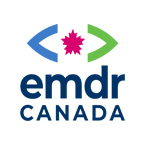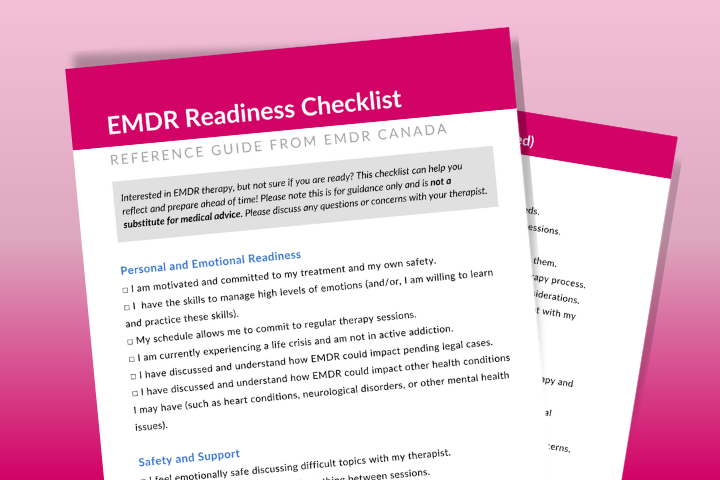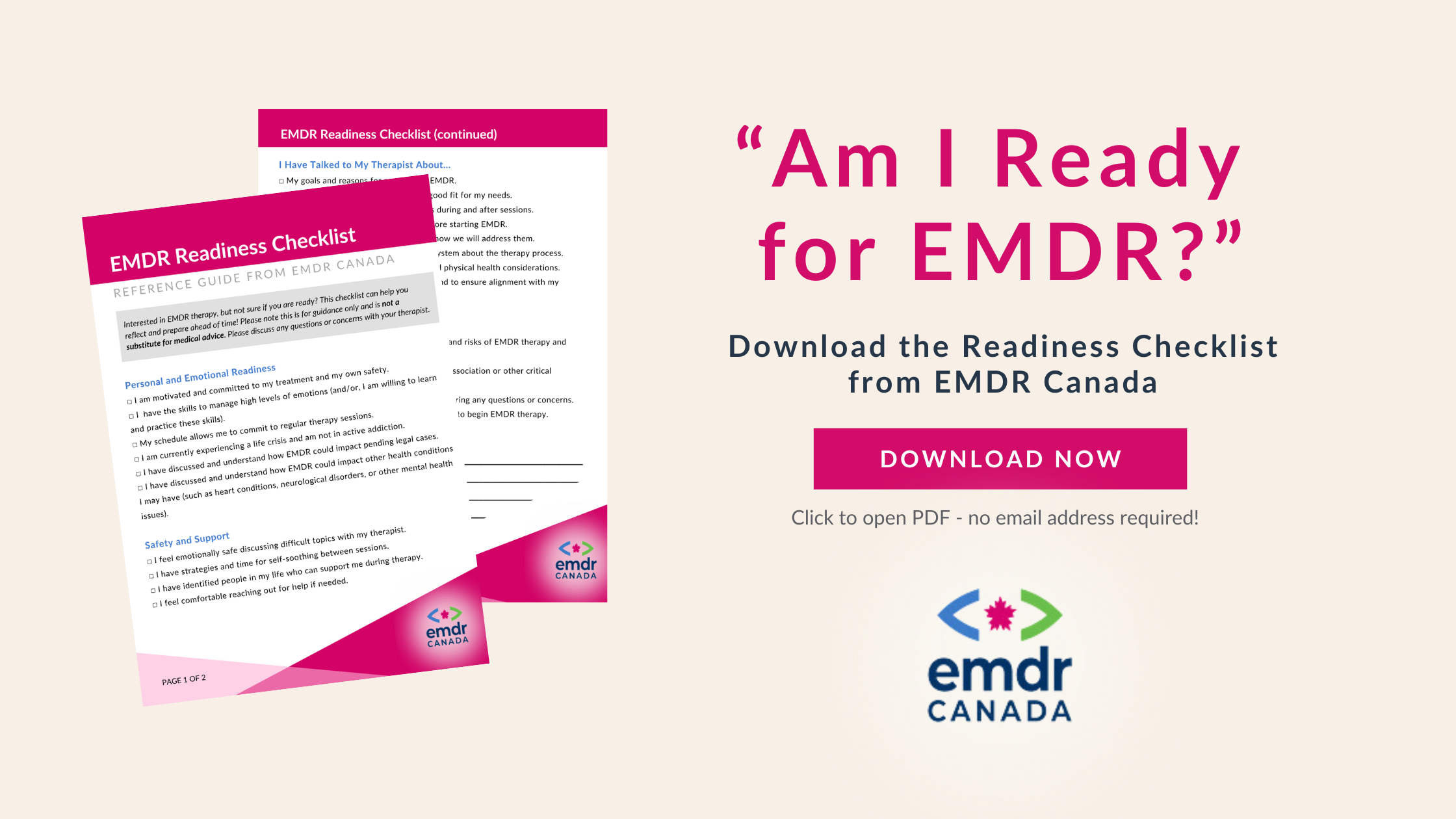It’s no secret that EMDR therapy, while often hlghly effective, can be an intense experience. Preparation can make a big difference in successful outcomes for EMDR clients—that’s why EMDR therapists go through three phases (History & Treatment Planning, Preparation, and Assessment) before beginning any processing work.
If you are considering EMDR, there are several ways you can prepare and think through the decision. Discussing it in detail with your therapist and support system, writing down every question, and practicing grounding techniques are all great starting points. In addition, we have created a helpful EMDR Readiness Checklist which provides a detailed list of self-reflections and topics to discuss with your therapist before beginning EMDR therapy.
As you work through the checklist and decide if EMDR is for you, there are several discussions you may wish to have with your therapist and loved ones. Here are six essential people you should have a conversation with ahead of starting EMDR.
A Conversation (or Several!) with Your Therapist
If you are pursuing EMDR with a therapist you already know and trust, you will still need to have an in-depth conversation about exactly what treatment entails and what might come up during the process. If you are considering a new therapist, multiple conversations will be in order!
Initial conversations with an EMDR therapist should include practical considerations, such as what kind of bilateral stimulation, as well as a deeper analysis of what emotional and coping skills you might need to practice before starting. Your therapist should also share the process in detail, ensuring a full understanding of what to expect at each stage (including possible challenges and risks). It is important to also ask about your therapist’s background and training, and to assess your own comfort level with them—be sure to pick a therapist that you can trust and connect with, and don’t be afraid to talk with a few different therapists to find the right fit!
A Conversation with Your Support System at Home
Having a low-stress and supportive environment to decompress can make a big difference in how you cope between EMDR sessions, especially as you start to bring up harder memories. If you live with other people, it can help to let them know that you are pursuing EMDR and to make them aware that you may be distracted, lower-energy, or dealing with hard feelings during the process. If you are a parent or caretaker, it is also a good idea to have a plan in place to minimize stress and effort on days that you have an EMDR session.
A Conversation with Your Support System Outside the Home
Support systems can extend beyond the people you live with. Consider reaching out to close friends, extended family, or other trusted individuals to let them know that you may need additional support, whether that looks like checking in with you, helping with errands, or just being available to listen when needed. These external support networks can help you get through challenging moments and give you the space to process emotions outside of your home environment.
A Conversation with Your Employer
If you work, it can help to consider how your job might be impacted by EMDR and make arrangements ahead of time. This does not necessarily mean disclosing anything specific to your employer, but it may mean taking steps to minimize stress at work and finding out what flexibility is possible if needed. For example, you could explore options like adjusting your schedule, using personal or sick days, or setting boundaries to protect your mental health during the process. Some employers also offer Employee Assistance Programs (EAPs), which could be a helpful addition to your support system. Considering your day-to-day work responsibilities ahead of time can help reduce the pressure and make it easier to focus on your journey.
A Conversation with Your Primary Care Doctor
People with PTSD or other mental health concerns often have other health issues to take into consideration when planning their treatment. In fact, this can be more common for those seeking EMDR therapy, as research shows that PTSD and anxiety are correlated with a range of physical health symptoms (Pacella et al., 2013). While other health issues usually do not prevent people from pursuing EMDR, they are important to take into consideration when planning treatment. This is especially true if one has a health issue that can worsen with increased stress, such as heart conditions, digestive issues, or some neurological disorders. A conversation with a primary care physician or similar medical professional is a good idea before starting any mental health treatment regimen, including EMDR.
Most Importantly, a Conversation with Yourself
This one isn’t quite a conversation in the traditional sense, but having clarity and doing some deep self-reflection can make a big difference when starting EMDR therapy. Questions you should ask yourself include…
- Do I feel safe? This includes feeling safe where you live (so you can decompress between sessions), feeling safe with your therapist, and above all, having a safety plan to deal with triggers and difficult emotions in a healthy way for yourself.
- Do I feel informed? Knowing how and why EMDR works, as well as the potential challenges and risks, is key to success.
- Do I feel supported? Support looks different for different people, but having people and resources around you that can help you follow through on care and safety plans is key to successful outcomes.
Our EMDR Readiness Checklist can help you think through these topics in more detail, and determine if this is the right time for you to start EMDR therapy.
Preparation is Key to EMDR Success!
Think of it this way: If you were treating a broken bone or an illness, you would likely need to adjust what you do and how you do it during treatment. That often means leaning on your support system as needed, making room for healing, and finding ways to manage the discomfort. The same is true for EMDR treatment! However, unlike a broken bone or illness, with EMDR you have the benefit of knowing that you will need extra support ahead of time and being able to fully prepare.
This starts with having the right conversations, planning ahead, and reflecting honestly on your own goals, desires, and capabilities.
Want to speak with an EMDR therapist about starting treatment? If you are in Canada, our therapist database is a great starting point. You can also visit our “Learn More About EMDR” page to get more information on how EMDR works.


